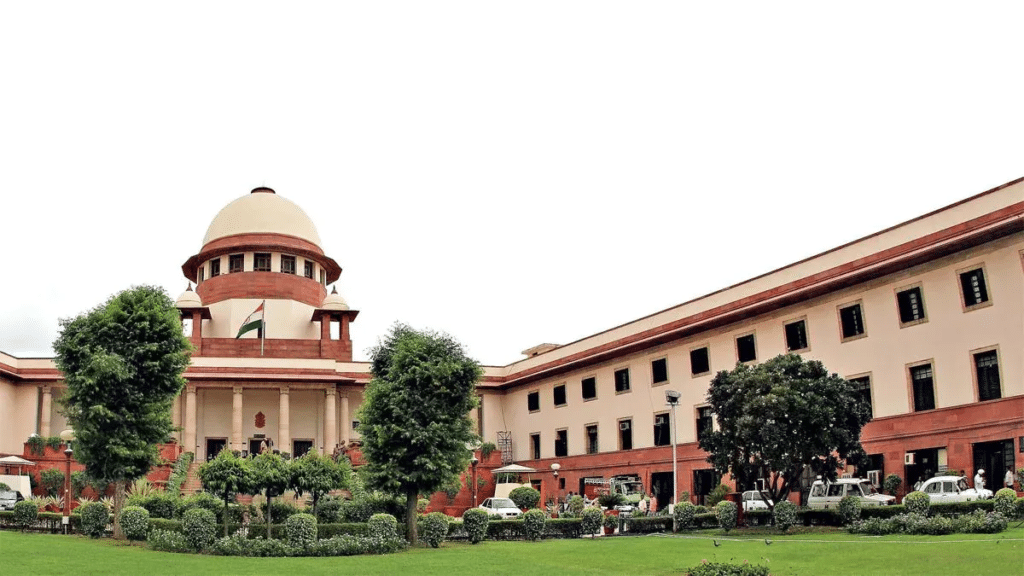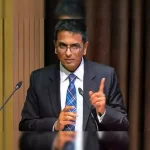
Table of Contents
Supreme Courts of India and Singapore to Collaborate on AI and Technology in Judicial Conference
A groundbreaking event is planned by the Supreme Courts of India and Singapore, to be held on April 13-14, 2024 at the Supreme Court of India entitled “Technology and Judicial Dialogue” This is an important global undertaking that brings together the top judicial leaders such as DY Chandrachud, Chief Justice of India and Sundaresh Menon, Chief Justice of Singapore.
They will join an esteemed panel comprising judges, jurists and experts who will discuss the profound effects that AI has had in law.
The conference seeks to tackle vital issues such as AI integration into court proceedings; how AI can be used for judicial training; technology-based justice access; as well as ethical dilemmas posed by AI in legal frameworks. These conversations will shape future policy directions towards a convergence between technology and law among judiciaries worldwide.
The partnership between Indian and Singaporean judicial systems demonstrates their shared vision for a technologically advanced judiciary. By this alliance they not only demonstrate their focus on digital transformation within governance but also set a pace in global standards of deploying technology for improved efficiency and fairness in courts.
The participants will include stakeholders from both Supreme Courts including academicians, prominent figures from legal and tech communities. In this discussion, innovative ideas could be shaping transformative ways of doing things in law, making it open to all people in its processes thereby being more efficient.
What makes this conference significant beyond bilateral relations?
These dynamics are expected to provide insight into how technology is influencing the future role of justice from various angles: ethics vs operations? What Counts?
- Conclusion
This conference represents meaningful steps towards merging technology with judicature which has begun since long ago.- As Artificial Intelligence (AI) evolves further, integrating it into legal systems across nations offers both challenges and opportunities. Better understanding of these issues along with global cooperation among courts are also promoted through this meeting. The implication learned by holding this workshop is most likely to decide how judiciaries are to be carried out around the world with respect for technology, hence ensuring that justice is innovative and fair to all people.
FAQs
What issues are addressed in the Technology and Judicial Dialogue conference?
The discussion will revolve around AI in judiciary which will include things like; court proceedings, training of judicial officers, justice access, and ethics.
Who are some of the participants in this conference?
DY Chandrachud who is India’s Chief Justice and his Singaporean counterpart Sundaresh Menon are among the other judges, jurists, technologists expected at the conference.
Some of the topics to be covered during the event include;
Among them are assistive AI tools in courts; AI as an aide-mémoire for judge-training courses; bridging justice access gaps through technology; ethical questions arising from the use of AI in law; and future implications of AI within legal systems.
Why did Supreme Courts of India and Singapore come together for such an event
In addition to setting a standard for global judicial reform by embracing digital transformation, this collaboration aims at sharing experience on how technology has been used in judiciaries.
Barelaw, an online platform dedicated to comprehensive delivery of legal knowledge, is proud to present its exclusive case briefs category. This section is made in such a way that it offers deep and useful analyses of landmark decisions which are seen as important resources for the legal professionals, students and anyone wishing to know about law’s complexities. Our case briefs are probing deeper into the crucial court decisions by explaining the logic behind each decision and how it has influenced law.
We recognize that understanding legal judgments can be difficult because they are quite intricate. It is due to this reason that our case briefs are designed in such a way that they give information while being easy to understand so that readers can comprehend the key principles of law involved. Each brief contains facts’ summary, an issue at bar legally, court’s reasoning and final decision arrived at. By using this method, our audience will find it easier to identify fine points of every case.
We are aware that the labyrinthine nature of legal judgments is difficult to fathom. For this reason, our briefs are both informative and understandable, thus enabling readers to grasp the fundamental legal principles involved. It contains an abstract of facts, the legal issue decided by court, the rationale behind it and finally the verdict. This systematized pattern allows our audience to understand every shade of a case.
Drop in on our case briefs and dive into law. Go to our website immediately and explore a cornucopia of legal knowledge available to you online. Below is a link for your easy access to our online library.
More drafts on law can be reached here – https://www.barelaw.in/legal-drafts/





